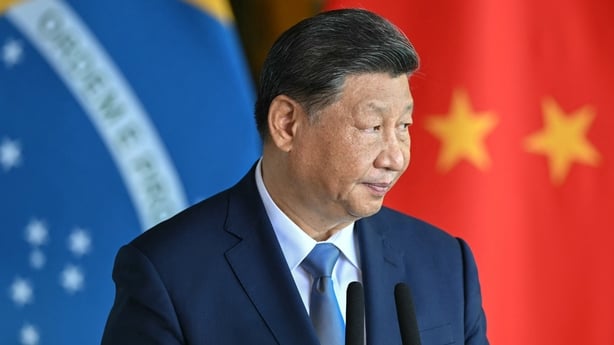China has announced a wide range of measures targeting US businesses including Google, farm equipment makers and the owner of fashion brand Calvin Klein, minutes after new US tariffs on Chinese goods took effect.
China also slapped tariffs on US products such as coal, oil and some autos in a rapid response to the new duties on Chinese goods imposed by US President Donald Trump, escalating trade tensions between the world's two biggest economies.
China's State Administration for Market Regulation said Google was suspected of violating the country's anti-monopoly law and an investigation was initiated in accordance with the law. It did provide further details on the investigation or on what it alleged Google had done to breach the law.
Google products such as its search engine are blocked in China and its revenue from there is about 1% of global sales. It still works with Chinese partners such as advertisers.

In 2017, Google announced the launch of a small artificial intelligence centre in China. But the project was disbanded two years later and the firm does not conduct AI research in China, according to a blog posting.
Separately, China's Commerce Ministry said it had put PVH Corp, the holding company for brands including Calvin Klein and Tommy Hilfiger, and US biotechnology firm Illumina on its "unreliable entity" list.
It said the two companies took what it called "discriminatory measures against Chinese enterprises" and "damaged" the legitimate rights and interests of Chinese companies.
Companies added to the blacklist can be subject to fines and a broad range of other sanctions, including a freeze on trade and revocation of work permits for foreign staff.
Google declined to comment. PVH and Illumina did not respond to requests for comment outside regular US business hours.
PVH had already been under scrutiny from Chinese regulators over "improper" conduct related to the Xinjiang region.
"These moves are warnings that China intends to harm US interests if need be, but still give China the option to backdown," Capital Economics said in a note.
"The tariffs could be postponed or cancelled before they come into effect... The probe against Google could conclude without any penalties."
We need your consent to load this rte-player contentWe use rte-player to manage extra content that can set cookies on your device and collect data about your activity. Please review their details and accept them to load the content.Manage Preferences
China also announced 10% tariffs on imports of US farm equipment that could impact firms such as Caterpillar, Deere & Co and AGCO, as well as a small number of trucks and big-engine sedans shipped to China from the United States.
That could apply to Elon Musk's Cybertruck, a niche offering Tesla has been promoting in China, as it awaits regulatory clearance to begin sales.
China's Ministry of Industry and Information technology designated the Cybertruck as a "passenger car" in a posting in December that was quickly deleted.
If the Cybertruck was designated as an electric truck, Tesla would face a 10% tariff on any future imports from its factory in Texas.
Read more:
Analysis: Trump's EU tariff threats raises concern among leaders
Tesla had no immediate comment.
The new tariffs on US products will start on 10 February, the ministry said.
The announcements ramped up trade restrictions between China and the US that had been largely limited to the tech sector under the administration of former president Joe Biden, which sought to restrict China's access to high-end semiconductors.
China said in December it had launched an investigation into Nvidia over a suspected violation of the country's anti-monopoly law, a probe widely seen as a retaliatory shot against Washington's latest curbs on the Chinese chip sector.
Intel's products sold in China were also called fora security review late last year by an influential Chinese industry group.

